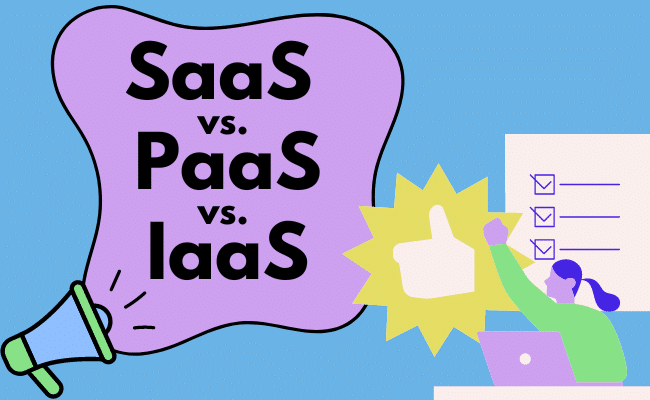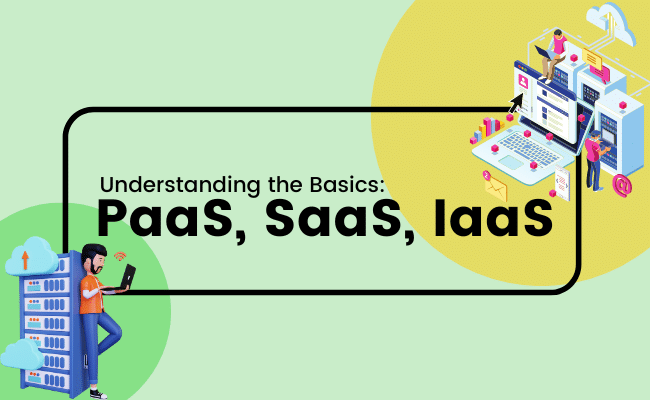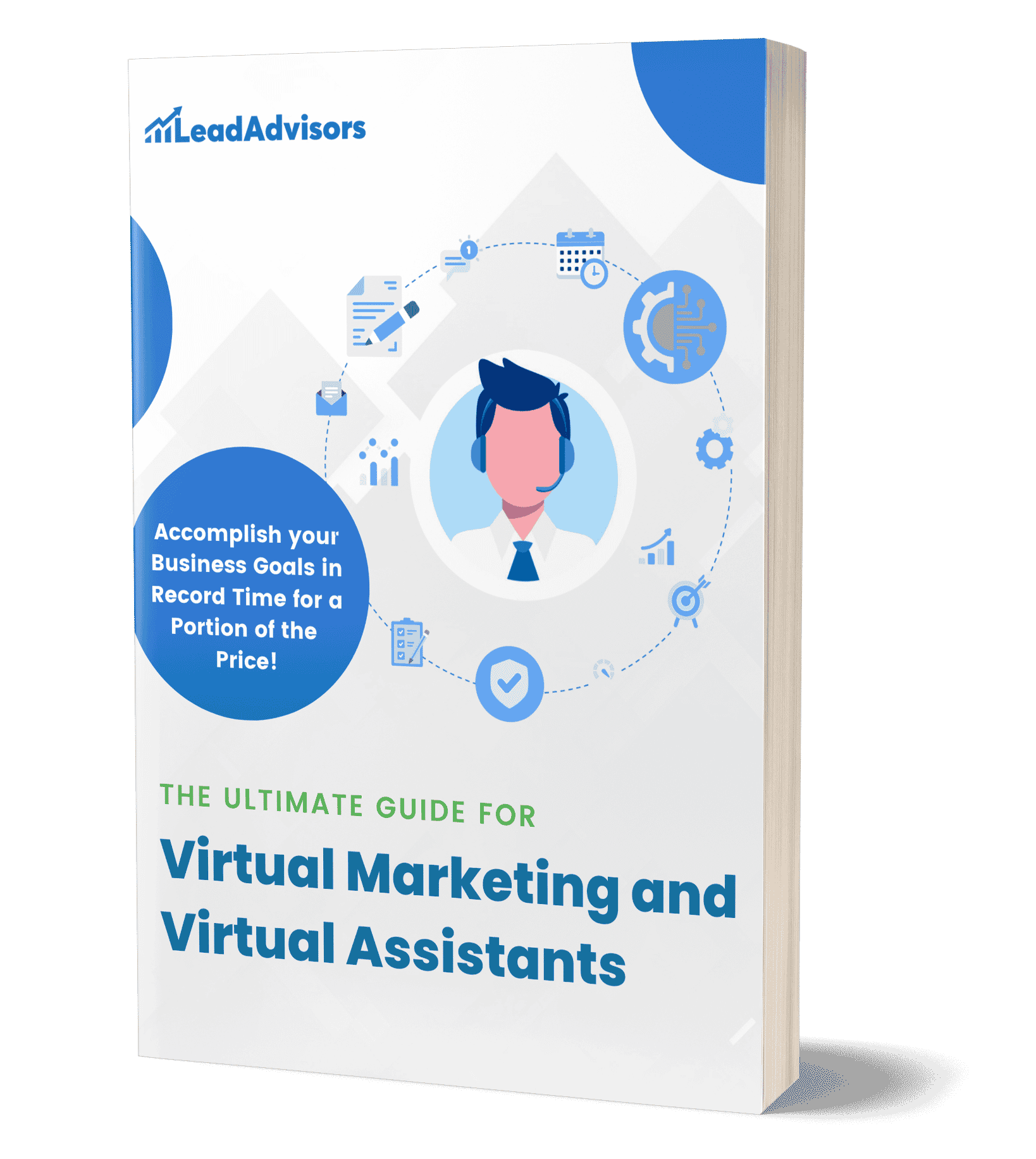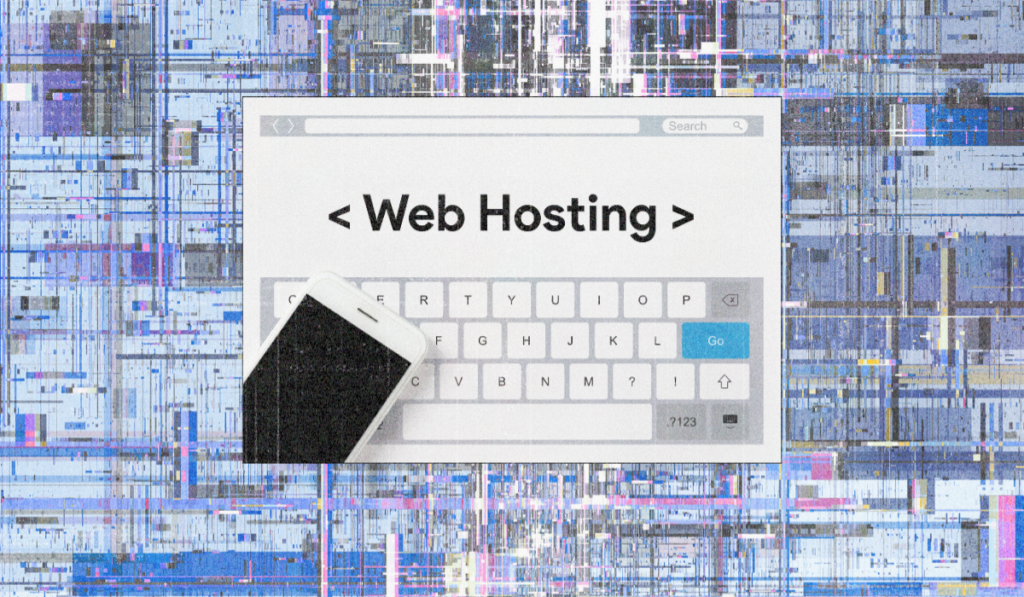Are you ready to dive into the thrilling world of cloud services? Today, we’re embarking on an exhilarating journey through the realms of SaaS vs. PaaS vs. IaaS. Whether you’re an aspiring tech enthusiast or a business owner looking to leverage the power of the full cloud computing infrastructure, this is the ultimate guide you’ve been waiting for!
Picture this: you’re standing at a crossroads, facing three captivating paths, each offering unique possibilities. PaaS, SaaS, and IaaS stand tall, ready to reshape how we harness technology’s potential. But here’s the catch—knowing the differences between them is vital. It’s the key to unlocking the full potential of the services and propelling your business to new heights.
In this comprehensive guide, we’ll unravel the mysteries of PaaS, SaaS, and IaaS, helping you navigate through the foggy landscape of cloud computing. We’ll break down the concepts, highlight their strengths, and explore their real-world applications. Significantly, prepare to feast your mind on practical insights, expert advice, and actionable tips that will empower you to make informed decisions for your business.
But that’s not all! We’ll also introduce you to a game-changing platform, LeadAdvisors, revolutionizing how businesses optimize their use of these services. Prepare yourself for a thrilling adventure as we embark on this cloud-powered odyssey. The future is waiting, and it’s time to conquer the cloud!
Understanding the Basics: PaaS, SaaS, IaaS
Cloud services have become the backbone of modern businesses, offering unparalleled flexibility, scalability, and cost-effectiveness. To harness their power, it’s crucial to understand the fundamental building blocks: Platform as a Service (PaaS), Software as a Service (SaaS), and Infrastructure as a Service (IaaS).
Besides, a Platform as a Service (PaaS) provides a comprehensive development and deployment environment, enabling developers to concentrate on creating applications without being concerned about the underlying infrastructure. SaaS delivers software applications over the Internet, eliminating the need for installation and maintenance on-premises data centers. IaaS offers virtualized computing resources, enabling businesses to build virtual data centers.
Cloud computing emerged in the early 2000s. It is rapidly evolving to revolutionize our digital operations. PaaS, SaaS, and IaaS have significantly impacted businesses. They foster innovation, enabling organizations to focus on core competencies while accessing enterprise-level capabilities. Startups and small businesses benefit from cost-effective access to powerful deployment and development tools.
LeadAdvisors understands the importance of cloud services. They act as a trusted advisor, helping businesses choose the right cloud service model. LeadAdvisors’ expertise ensures businesses maximize the benefits of cloud computing services through PaaS, SaaS, or IaaS based on unique requirements.
In the upcoming sections, we will explore the operational capabilities of each cloud service model in-depth. Discover the transformative power of PaaS, SaaS, and IaaS as we uncover their secrets. Meanwhile, get ready to optimize your business operations and propel your success in the digital realm with the insights and guidance provided by LeadAdvisors.
You May Also Like: What Is a Virtual Assistant? Learn How They Can Help You
PaaS: Platform as a Service
The cloud computing model, Platform as a Service (PaaS), offers developers a framework to construct, deploy, and oversee custom applications, eliminating the need to be concerned about the underlying infrastructure. PaaS offers a complete development and deployment environment, enabling developers to focus on coding and innovation rather than infrastructure management.
PaaS offers its cloud application services with several benefits to businesses.
- Scalability allows businesses to easily scale their applications as needed without the hassle of procuring and managing hardware resources.
- Promotes collaboration among development teams, providing a centralized platform where multiple developers can simultaneously work on the same project.
However, PaaS does have its drawbacks. It may limit certain customization options compared to building applications from scratch. Organizations relying heavily on legacy systems or requiring highly specialized configurations may find PaaS solutions less suitable.
There are several prominent examples of PaaS in the market.
- Heroku offers a platform for building, deploying, and managing web applications.
- Google App Engine is another popular PaaS provider that supports multiple programming languages and offers scalable hosting.
LeadAdvisors understands the importance of effectively utilizing PaaS for businesses. With their expertise in SEO strategies, LeadAdvisors can guide businesses in optimizing their use of PaaS platforms.
Read More: The Best TikTok Alternatives: Platforms to Amplify Your Digital Presence
SaaS: Software as a Service
Software as a Service (SaaS) pertains to a cloud computing approach where software applications are distributed via the Internet and wholly managed by a service provider. With SaaS, businesses can access and use applications on-premises data center without installing, maintaining, or managing the underlying infrastructure, such as servers and databases.
The benefits of SaaS are manifold.
- Applications provide convenience and accessibility as they can be accessed from any internet-connected device.
- Handle maintenance, updates, and security, relieving businesses from the burden of software management.
- Offers scalability, allowing businesses to easily adjust their usage and subscription plans as their needs evolve.
However, there are some considerations to keep in mind with SaaS. Businesses may need help in customizing the Software to fit specific requirements. Additionally, reliance on an operating system from a third-party provider means potential data privacy and security risks.
There are numerous examples of SaaS applications available today.
- Salesforce, a major customer relationship management platform, is a notable example of a SaaS solution that empowers businesses to effectively handle their sales, marketing, and customer service operations.
- Microsoft Office 365 provides a suite of productivity tools accessible through the cloud.
When maximizing the benefits of SaaS, LeadAdvisors excels in providing tailored content marketing strategies. With their expertise, businesses can effectively promote and utilize SaaS products. LeadAdvisors’ content marketing strategies focus on creating valuable, engaging content that educates and attracts the target audience.
You May Also Like: What Is Iterative Design and Continuous Improvement?
IaaS: Infrastructure as a Service
Infrastructure as a Service (IaaS) is a cloud computing model that provides businesses with virtualized computing resources over the Internet. Additionally, IaaS allows organizations to access and manage their virtual computing infrastructure without physical hardware, including servers, storage, and networking components.
IaaS offers several benefits to businesses.
- It provides scalability, allowing organizations to scale up or down their infrastructure resources based on their needs. This flexibility is particularly valuable for businesses with fluctuating demands.
- Eliminates the upfront costs and complexities associated with maintaining physical infrastructure, as the service provider handles all hardware maintenance and management.
However, there are certain considerations with IaaS. Organizations must have skilled IT professionals to effectively manage and configure the virtual infrastructure. Additionally, reliance on the Internet for accessing infrastructure resources on-premises data centers may introduce potential latency or connectivity issues.
Numerous examples of IaaS providers exist in the market.
- Amazon Web Services (AWS) is a prominent Infrastructure as a Service (IaaS) company that provides an extensive range of services, encompassing virtual servers, storage, and databases.
- Microsoft Azure, which provides various IaaS solutions to meet various business needs.
IaaS offers administrators more direct control over cloud servers and operating systems, allowing them to customize and configure their virtual infrastructure according to their specific requirements. Hence, this level of control allows businesses to optimize their cloud infrastructure for performance, security, and compliance.
LeadAdvisors understands the importance of leveraging IaaS for business growth. In detail, with their expertise in sales funnel strategies, LeadAdvisors can guide businesses in utilizing IaaS to drive sales and expand their customer base.
Read More: Content Promotion Strategies: Amplifying Your Message
Comparing SaaS vs. PaaS vs. IaaS
After analyzing the individual concepts of Software as a Service (SaaS), Platform as a Service (PaaS), and Infrastructure as a Service (IaaS), let us compare SaaS vs. PaaS vs. IaaS. Overall, this comparative analysis will provide valuable insights to help you make an informed decision for your business.
Cost
Regarding cost, SaaS typically offers a subscription-based pricing model, allowing businesses to pay for the Software regularly. PaaS may have a similar pricing structure but incurs additional costs of customization, deployment, and development tool. IaaS follows a pay-as-you-go model, where businesses pay for the infrastructure resources they consume.
Scalability
Scalability is another crucial factor. SaaS provides instant scalability as the provider handles infrastructure scaling. PaaS allows for scaling applications, while IaaS offers granular control, enabling businesses to scale infrastructure resources based on their needs.
Control
In terms of control, SaaS offers the least control as the Software and infrastructure are managed entirely by the provider. PaaS provides more control by allowing customization of applications, while IaaS gives businesses full control over their virtualization technology infrastructure.
CRM
Use cases for each service vary. SaaS suits businesses seeking ready-to-use applications, like customer relationship management (CRM) or emails marketing software. PaaS is ideal for developers who want to build and deploy custom applications without infrastructure management. IaaS is preferred by businesses requiring complete control over their infrastructure, such as software development companies.
Choosing the right service depends on business requirements, technical expertise, and budget. Regardless, evaluating specific needs and considering scalability, control, and customization requirements is crucial.
Indeed, LeadAdvisors can assist businesses in making the right choice and optimizing cloud computing service models and usage. Their expertise helps identify the most suitable cloud service model based on unique requirements. LeadAdvisors ensures businesses maximize the benefits of customized cloud operations through SaaS, PaaS, or IaaS, making informed decisions to drive growth and success.
You May Also Like: Top 10 Real Estate Social Network Platforms – Boost Your Business
Frequently Asked Questions
Who should use SaaS, PaaS, and IaaS?
SaaS is ideal for businesses looking for ready-to-use, scalable applications with minimal upfront costs. It’s particularly beneficial for small to medium businesses that lack the resources to develop or host their own applications. PaaS is suited for developers who want to create applications without spending time on managing servers, storage, and networking, while IaaS is perfect for companies that need complete control over their environments and prefer to pay as they go rather than invest in hardware.
What are the main advantages of using SaaS, PaaS, and IaaS?
SaaS offers ease of use, accessibility, compatibility, and operational management. PaaS provides a simple, cost-effective platform for developers to develop, test, and deploy their applications quickly. Lastly, IaaS offers flexibility, scalability, and control, allowing users to customize hardware and software based on their needs.
What are the potential drawbacks of SaaS, PaaS, and IaaS?
SaaS may limit the ability to customize features or integrate with existing systems. PaaS might result in vendor lock-in, where users become dependent on a specific platform and find it hard to migrate. IaaS requires more technical skills to set up and manage than SaaS or PaaS options.
How can I decide which cloud service is right for my business?
The decision should be based on specific business needs and technical capacity. Consider factors such as the level of control needed, budget, staff technical skills, the extent of customization required, and the specific tasks you need the service for. Assessing these factors will help determine whether SaaS, PaaS, or IaaS—or a combination of these—is the best choice.
Conclusion
In this guide, we explored the world of cloud services: SaaS vs. PaaS vs. IaaS. We discussed their definitions, benefits, drawbacks, and use cases. Understanding these differences is crucial for making informed decisions.
Cloud-based Software can significantly increase productivity and efficiency by eliminating infrastructure management. Businesses can focus on core competencies and innovation.
LeadAdvisors‘ services help navigate the various cloud service provider landscape. Their expertise guides businesses in choosing the right cloud-based service and optimizing cloud usage. Whether through SEO strategies, content marketing, or sales funnels, LeadAdvisors maximizes the benefits of cloud services for growth and success.
Embrace the power of cloud services and LeadAdvisors’ guidance to propel your business forward. Streamline operations, stay competitive, and soar to new heights in the cloud-driven future.
















